“What happens during fermentation?”
James Marsden, the outspoken owner of Gregg’s Pit Cider & Perry in Ledbury, has thrown me yet another question – one that I suspect he didn’t really want an answer to.
I had just driven in from Goodrich, a little Herefordshire village about 20 minutes away. After repeatedly crawling along the same stretch of country lane, I finally managed to spot the un-signposted opening squeezed between two homes. Past this, and along a single-lane dirt track, was the elusive smallholding responsible for supplying fine ciders to Michelin-starred restaurants in London and beyond for upwards of £10 a bottle. But instead of a warm welcome, James has been bombarding me with questions – questions to which I just can’t seem to come up with the right answers.
Tentatively, I respond to the latest one, “Well, heat is produced…”
James cuts me off again. Legally, James explains, cider only needs to contain 35 per cent apple juice and this can be from concentrate, which keeps some of the most well-known brands in production year-round and their prices extremely low. In contrast, James’s ciders are made when the fruit is ready, using natural yeast on the skins, which means it takes almost a year between the apples falling off the tree to the bottles finally being sealed. It’s an artisanal product, with a price to match – and it sells out faster than it can be made.
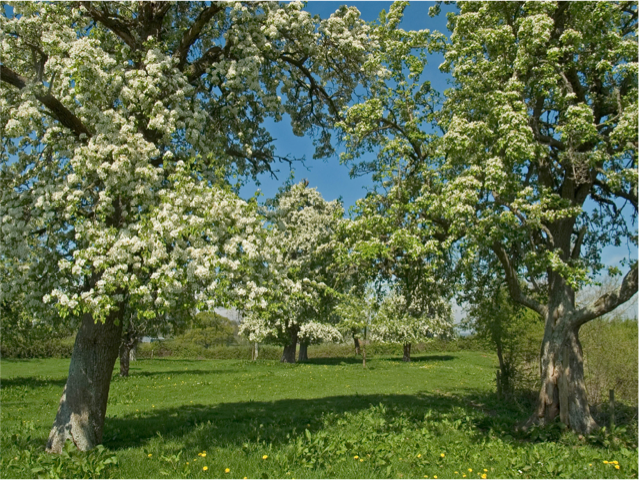
James takes me into one of his orchards, where the original 300-year-old Gregg’s Pit pear tree towers majestically. All around us are its grafted offspring, planted some 20 years earlier and now ripe for bearing fruit.
As we talk about his cider-making philosophy, the earlier abrasiveness has all but disappeared. I get the sense that the frostiness is all for show – so he can break down any expectations and prior knowledge and talk me round to his way of thinking. In fact, he’s positively radiant by the time we make it to the stretch of orchard right next to his home and it’s not hard to see why he’s so in his element here. It’s nearing peak apple and pear blossom season and, with the sun shining and a light breeze picking through the leaves, the tiny but perfect orchard is awash with birdsong. The word wholesome comes to mind.
Next to the little shed where the cider is pressed, fermented and aged, I taste James’s ciders for the first time. And that first sip cements everything he said. Unlike the sugary stuff I’m so accustomed to paying £6 a bottle for in pubs, this is clean, dry, with a lovely finesse. It’s almost like drinking a fine wine – not in terms of the alcoholic content but in the way that the light effervescence carries the flavours to your palate, where it lingers long after it has slipped down with delicious ease – and I find myself excited for the first time since arriving. This tastes good.
As I take driving-compliant sips, I imagine polishing off bottles of the stuff over a sun-dappled picnic spread with the fruit trees as my companions. But no such luck. Gregg’s Pit marked the final stop of my “maker’s break” in Herefordshire; the rural county has a rich tradition of small heritage producers and craft makers and I had just spent a long weekend seeing them in action.
My first stop was a tour and tasting at Chase Distillery, learning all about how vodka and gins are made, and experiencing first-hand the entrepreneurial spirit in Herefordshire. Its founder, William Chase, comes from a long line of potato farmers and found his niche as a serial entrepreneur by launching Tyrrells Crisps. Chase vodka came next, and he’s now moved on to making Willy’s Apple Cider Vinegar, having recently sold the brand to drinks giant Diageo.
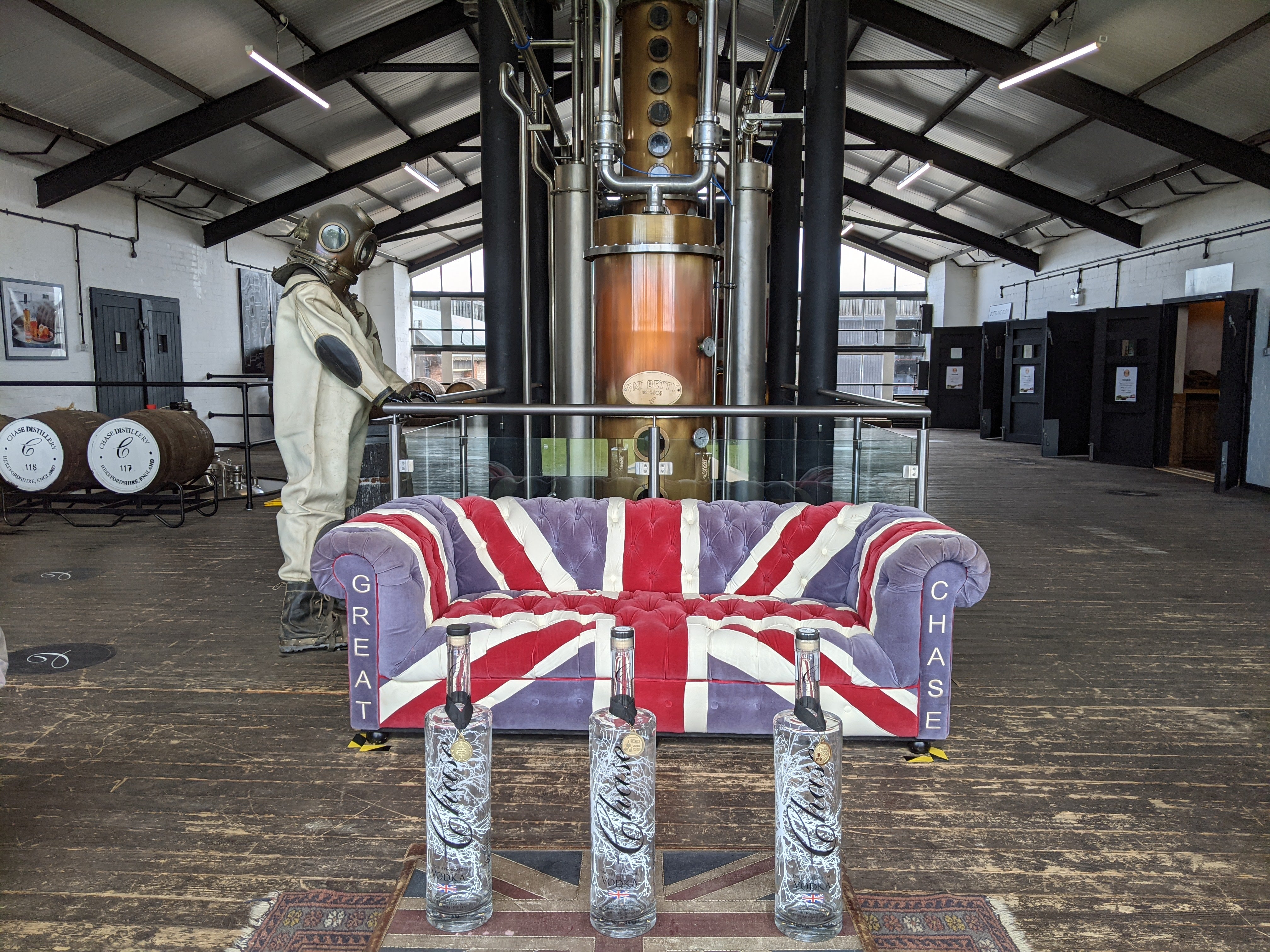
While no longer a small maker, the family is still very much involved. William’s younger son James, who popped in to say hello during my visit, is the brand’s global ambassador. And his older son Harry, a potato farmer, is still out at all hours making sure the spuds for the vodkas and gins are in top shape.
Farming aside, Herefordshire is also home to a long tradition of ironmongery, with many forges still making pieces to commission. And unlike forges in other parts of the country, you can get involved in the action here. I channelled my inner blacksmith on Oldfield Forge’s one-day knife making course, where over about six hours in its Garway Hill workshop, I managed to transform a rectangular piece of steel into a blade.
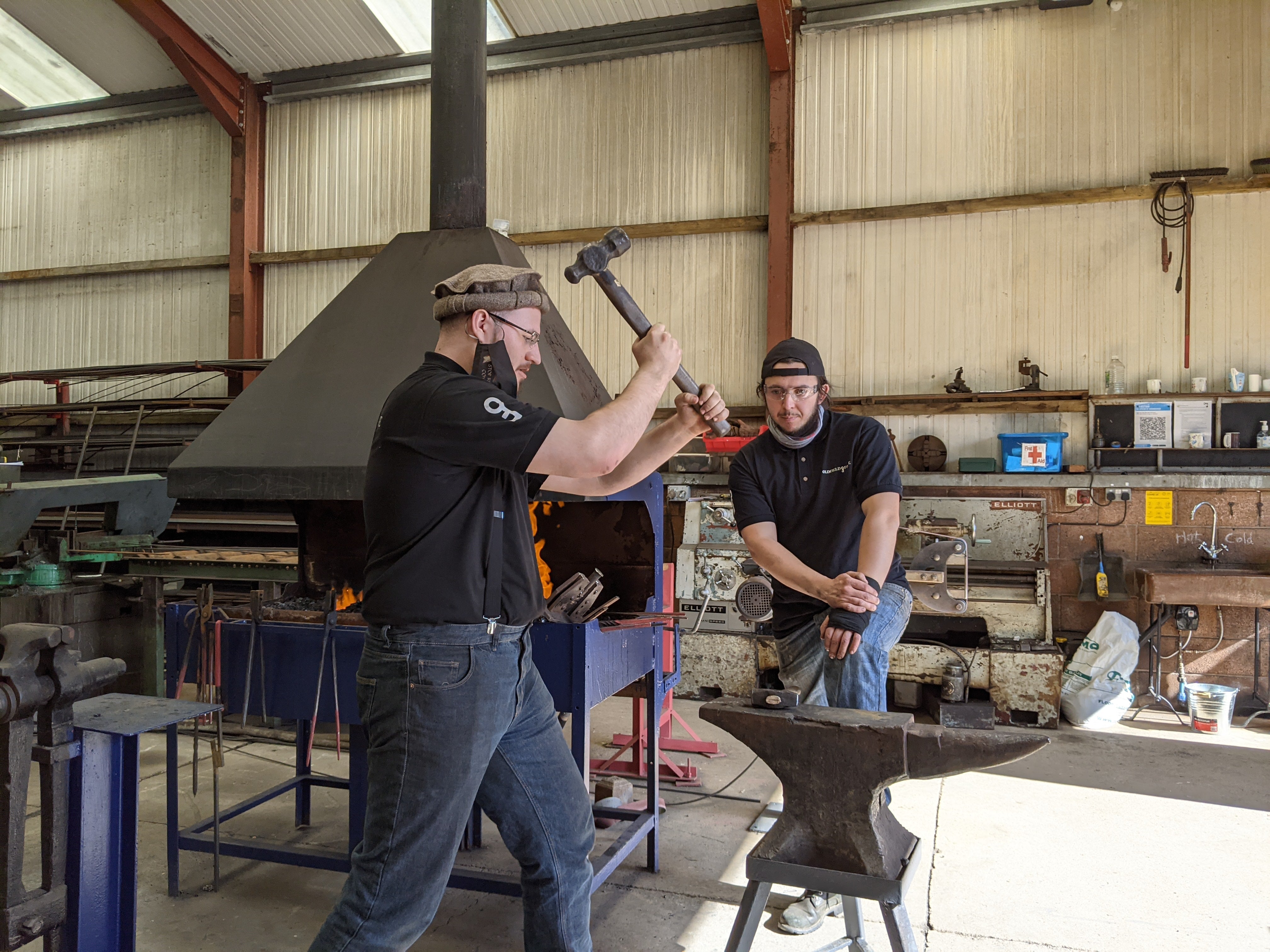
I can tell you now, making a knife isn’t as easy as it looks on Game of Thrones. There is a team of ironmongers on hand at Oldfield to help you through every stage of the process and come to the rescue when things go awry. Even then, my own attempt at making a mezzaluna, a two-handled herb chopper, looked more like a piece of iron age jewellery than anything you might find in a kitchen. And that’s after several hours of hammering, one incident of overheating that melted away half the metal, and a lot of tentative burnishing. I am weirdly proud of it – it’s hard not to be when you’ve laboured over something – but I don’t think a career in blacksmithing is on the cards for me.
Fortunately, Herefordshire had more crafts I could turn my hand to. So with a sore wrist and aching shoulders – a result of poor hammering posture (yes, this is a thing) – I headed to Dilwyn for a bag making course with Sarah Williams. The founder of handmade and bespoke leather goods brand Williams Handmade, Sarah has over a decade’s experience of working with leather. As well as bag making workshops, she also runs longer, multi-day courses for those who want to make bespoke designs.
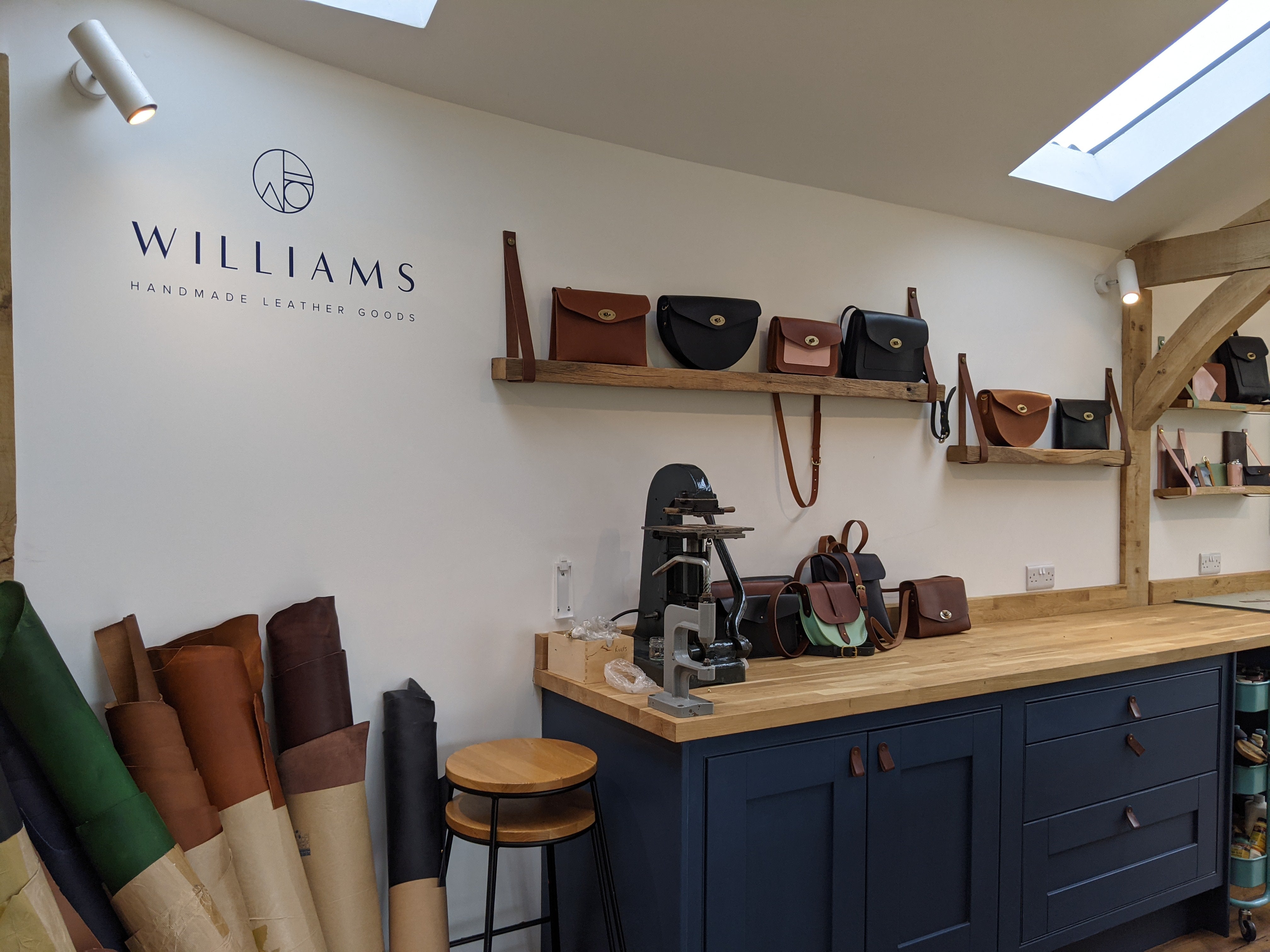
Her tranquil home studio, which looked out onto an orchard filled with sheep, was the very opposite of the noisy ding of Oldfield Forge, and coal-blackened hands were swapped for cups of herbal tea. Everyone has their own tools and workstation where they can choose their own material, cut the leather, and hand stitch it into a bag in the space of a day. This slower pace gave me a chance to ask why there were so many makers in Herefordshire.
“Necessity,” Sarah said. “There isn’t much industry in Herefordshire so if you don’t want to be a farmer there aren’t many jobs around.” It helps too, she says, that the local college offers hands-on training for everything from blacksmithing to furniture making. I would add to that, passion – and I for one am glad to have had the opportunity to share it.
As for my handbag, it turned out much better than I expected. After my less-than-impressive attempt at knife-making, I was convinced the results would be akin to Cecilia Giménez’s botched restoration of Ecce Homo, so I was surprised to fashion something that a friend has recently mistaken for a Mulberry. Cue mega-proud correction.
Travel essentials
Getting there
It’s easy to get to Herefordshire via train to Hereford, although to get to some of the more rural spots you’ll need to have a car or book taxis well in advance.
Staying there
Stay at the Flanesford Priory, which is just a short hike from Goodrich Castle and the gorgeous river views at Symonds Yat. Prices for the two bedroom cottage start from £240 for three nights. Cider Mill Cottage, which sleeps six, costs from £735 for three nights.
Visiting there
Visits to Gregg’s Pit are free but by appointment only – you pay only for what you taste. Kids are welcome, but dogs are unfortunately not for hygiene reasons.
Tours of Chase Distillery, lasting an hour and 45 minutes, cost £20 per person and include a tutored tasting and two G&Ts.
Knifemaking at Oldfield Forge costs £157.50 per knife and two people can work on the same blade.
A full-day’s bag making at Williams Handmade starts from £135 per person. All materials are provided on standard courses but if you want to make your own designs, materials may be extra.
More information
For more information about Herefordshire, see visitherefordshire.co.uk.

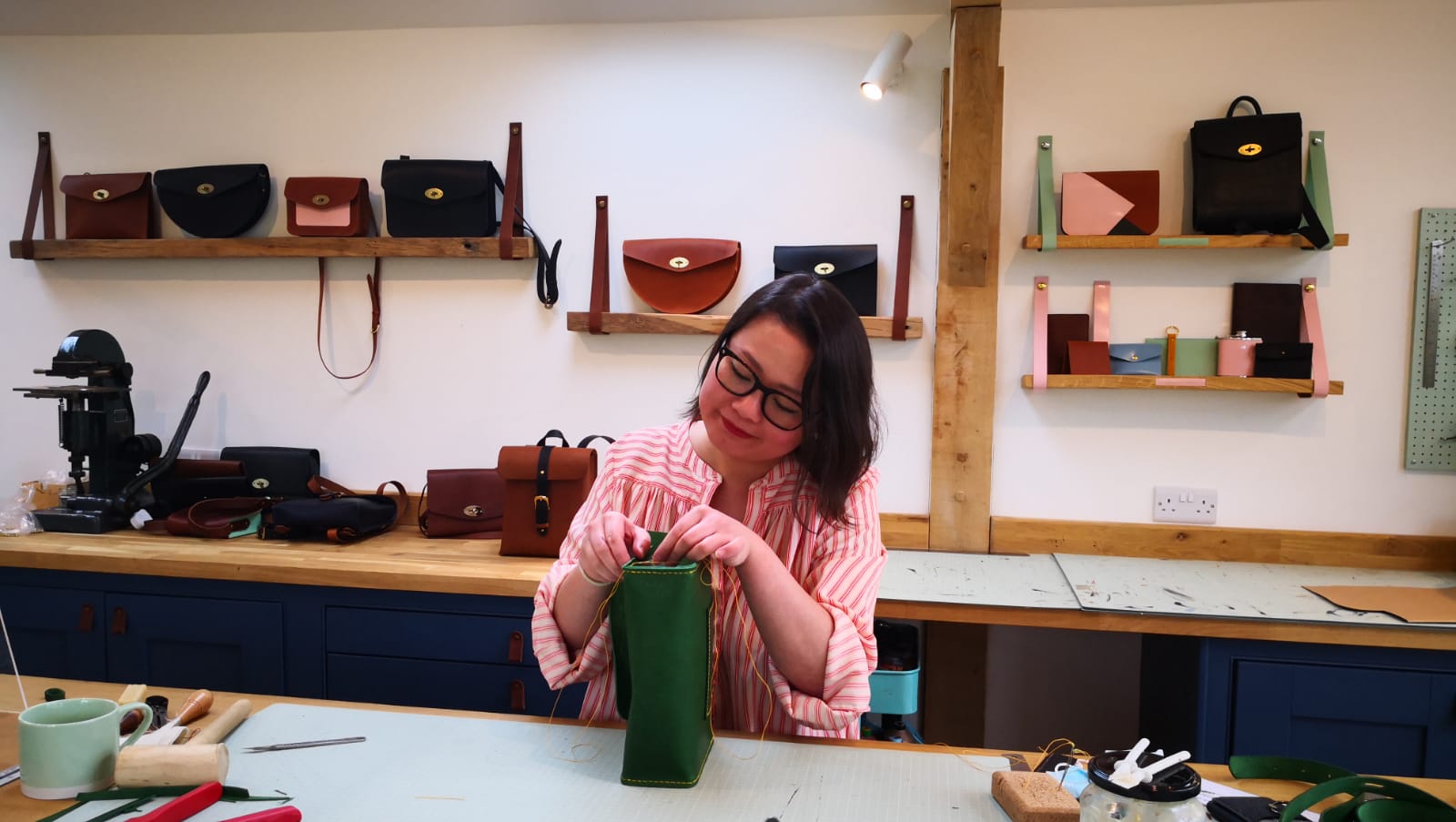

Join our commenting forum
Join thought-provoking conversations, follow other Independent readers and see their replies